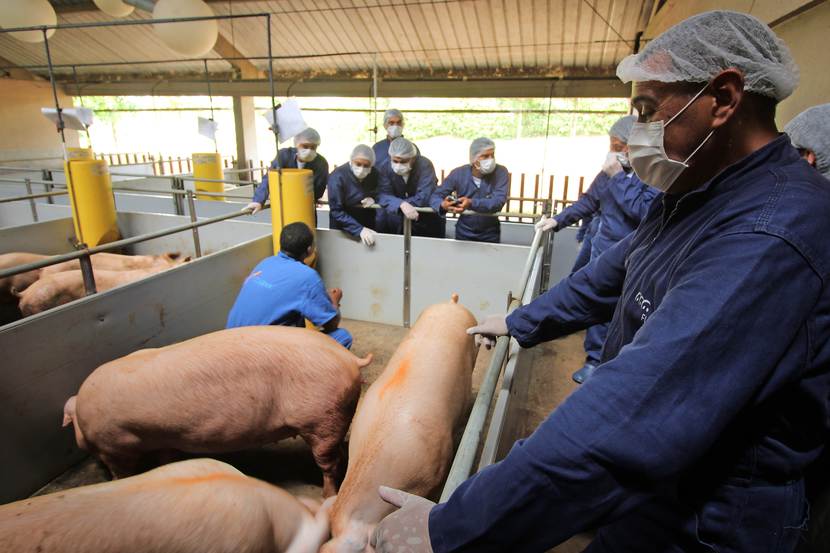First DGGF funding for investment in Colombia
The Dutch-Colombian pig farm and training company HoCoTec is the first company to receive funding from the Dutch Good Growth Fund (DGGF) for an investment in Colombia. The company will use the loan to invest in a trebling of its production capacity, its own slaughterhouse and its own meat-processing facility.

Luc Willekens, co-owner of HoCoTec: "We set up a commercial pig farm with our local partner in 2012. In addition, our company is involved with two other activities: training and demonstrations. HoCoTec also acts as a professional training centre for the Latin American pig farming industry. Our centre, which has been accredited in accordance with strict Dutch regulations, focuses on practice-based management skills in the western European tradition. HoCoTec is a demonstration centre as well: a showroom for new developments, particularly for western European companies that want to enter the Latin American market."
Plans for a fourth activity
"HoCoTec wanted to expand its capacity," says Willekens. "We also wanted to start a fourth activity: slaughtering and processing meat in order to provide the domestic market with greater food security and safety. You need a slaughterhouse and a meat-processing facility to do so, however, which cost money."
DGGF funding for doing business on emerging markets
Willekens knew about the Netherlands Enterprise Agency (RVO.nl) and approached it for a loan under the DGGF.
He submitted his application in conjunction with his own advisers, with whom he had been working for years. Willekens received the funding in July 2017. "This funding enabled him to get started, making him the first entrepreneur to be awarded funding for an investment in Colombia," says DGGF investment manager Els Huntjens, who is responsible for the implementation of the fund at RVO.nl.
Sustainable and animal-friendly
HoCoTec is unique in its sustainable and responsible approach to business. The pig farm complies with the latest Dutch and European animal welfare standards. It meets the requirements of the IKB Welfare Plus quality label, which stipulates welfare criteria for the breeding, feeding, transport and slaughter of pigs. According to the animal welfare organisation World Animal Protection, HoCoTec is a role model for Colombia.
More than 100 additional jobs will be created
"We are currently trebling our production capacity, building a slaughterhouse and setting up our own meat-processing facility," says Willekens. "Within the next three years, we will be selling 250 tonnes of meat a month. All these efforts are a huge boost to local employment. We will be creating more than a hundred jobs over the next few years, both directly and indirectly."
According to Willekens, none of this development would have been possible without the DGGF. "We approached Dutch and Colombian banks for funding. However, their funding decision was based primarily on either local applied knowledge or financial knowledge. The DGGF has all the necessary knowledge in-house."
Importance of local knowledge and expertise
"I’ve been in Colombia since 2012. If I was a complete newcomer to the market now, I don’t know whether I’d risk entering it without the DGGF. The DDGF imposes stringent requirements on the content and value of your business plan. You can only really meet these requirements if you genuinely have local knowledge and expertise. However, the DGGF can still be invaluable for start-ups."